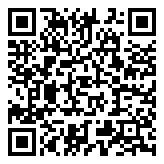CRS Seminar: Stories that Save Lives: The Boom of Iranian Refugee Memoir
This is a virtual event
Zoom:
Register in advance for this meeting:
https://yorku.zoom.us/meeting/register/tJYvceCrrzMrHtPHf91wZRH8mIvRIL88xf8k
After registering, you will receive a confirmation email containing information about joining the meeting.
*************
Guest Speaker: Mehraneh Ebrahimi, Assistant Professor, Department of English, York University
How do refugee memoirs differ from other sorts of life writing? What are at stake when a refugee makes a truth claim regarding the atrocities they have faced, many at the hands of benevolent Western states?
A memoir written from a refugee camp in 2019 won international recognition and hundreds of thousands of award money while the author was still incarcerated, without access to a bank account, or internet. No Friend but the Mountains, Writing from Manus Prison was composed over the six-year detention of Behrouz Boochani in a case-processing-center built for asylum seekers who reach Australia by boat (wet feet) and are thus prohibited from entering the country- forever. Thumbed one text at the time on a smuggled phone, this ‘WhatsApp memoir” painstakingly weaves together a community of witnesses around the world who finally enable his freedom, and close that camp. With over eighty million forcibly displaced people in the world many more illegal prisons still are open.
In this talk Prof. Ebrahimi will go over the boom in the publication of memoirs by Iranian refugees such as those written by Behrouz Boochani, Dina Nayeri, Mana Neyestani, and Golriz Ghahraman.
Publication of life stories are empowering acts of subject formation in the face of the mechanism of discipline and control that governments have built to abjectify, shun, and ignore the existence of millions of forcibly displaced people. She argues that refugee narratives subvert the systematic silencing of the asylum seekers. Bringing these intimate stories of injustice to the “free world” they fortify a social bond that eventually envisions a community of witness. These apparently natural acts of personal story telling can requalify the foreclosed space of the refugee camp and transform it into an active aesthetico-political locus for change.
Although refugees have been hypervisible in news sensationalism in a menacing way, the literary connotations of individual refugee stories haven’t been fully explored. Images of alarming swarms of women and children in need of immediate rescue in the news media has desensitized people to the dilemma of those forcibly displaced from their homes. Migrants are pictured as homogenous, silent masses. Numbing images such as these are met with the averted gaze in the age of compassion fatigue and over stimulation. On the other hand the legal discourse has its own narrow frames of reference when responding to lifestories. A reference which depends on each nation’s unique culture of affection, hospitality, and patterns of trust. Memoirs that access modes of narrative production can incite political change and drive international attention to bare human lives.
Although denied the physical space of asylum, many authors create one for themselves through memoir writing. As a viable response to a ban, refugees iterate and reclaim their personhood through their autobiographical acts to create a sanctuary or in the words of Phillipe Lejeune an “asylum in space” and an “archive in time” (324). They take up space where space was denied to them, the space reserved for the political subject with a right to say no and express dissensus. These diaries thus are an archive in time by beckoning and addressing different communities of spectators: the general public, journalists, humanitarian activists, and law makers. Gillian Whitlock asserts that writing from the camp produces “a chronicle of the occupation, a performative space where the diary narrative enables a visceral and intimate account” (180).
Mehraneh Ebrahimi is the author of Women, Art, and Literature in the Iranian Diaspora (Syracuse 2019) and assistant professor of English at York where she teaches courses on Diaspora and World literature. She can be reached via email: mehr@yorku.ca

